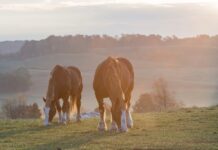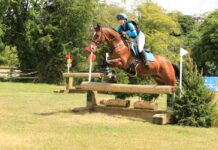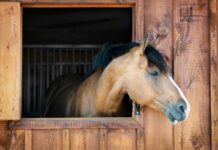Finalists and topics revealed for this year’s BETA Equine Thesis of the Year – and you can view the presentations for free.
The search for the winner of the BETA Equine Thesis of the Year Award, which recognises and rewards excellence in undergraduate study, is almost over.
Four finalists are now in the running and will present their thesis to a panel of judges during an online event on Sunday 31 October.
Universities and colleges offering equine-related degrees throughout the UK and Ireland were each invited to submit one entry, with the following making it through to the finals:
● Writtle University College – Isabelle Anderson. Thesis: Owner satisfaction with rehabilitation practices for chronic sacroiliac pain in equines in the UK since the year 2000.
● Harper Adams University – Isabel Badham. Thesis: The effect of different water depths on the activity of the equine longissimus dorsi muscle whilst walking on a water treadmill, measured by surface EMG.
● The Royal Veterinary College – Sophie Avery. Thesis: Risk factors for equine glandular disease associated with general management and husbandry of domesticated horses: A multicentre retrospective case-control study.
● University of Limerick – Rebecca Dillon. Thesis: An evaluation of racehorse performance using the speed gene test and the dosage system.
The BETA Equine Thesis of the Year finals will start at 2pm and are open to the public and members of the academic community. Tickets are available free from Eventbrite, at https://www.eventbrite.co.uk/e/184592971547
Each finalist will present her work and while it is being considered by the judges, will respond to questions from the audience. The judges will then return to announce the winner and runner-up of the award.
“The Equine Thesis of the Year Award is a fantastic way for us to mark the extremely high standard of undergraduate study that is being produced at our universities and colleges,” said BETA executive director Claire Williams.
“There is some incredibly impressive research taking place and some exciting and diverse ideas, which will certainly give our industry – and equestrians – plenty of food for thought.
“Taking a ringside seat makes sure we can hear about the work that is being done – straight from the horse’s mouth. And maintaining the event online makes it accessible to everyone. We are really looking forward to finding out more about the theses and discovering who is crowned winner. We wish the students and their universities the very best of luck and congratulate them on making it this far.”
This year's final judges are:
• Dr Georgina Crossman – a research consultant and owner of GK Crossman Consultancy. Georgina is a guest lecturer at various institutions, speaking on subjects such as the structure of the horse sector and the relationship between the horse industry and government.
• Katie Williams – an equine nutritionist with 20 years’ experience. She gained a master’s degree in equine science from Writtle College and received the Edgar Pye Scholarship for her dissertation on the effects of prebiotics on racehorses in training. In 2017, Katie embarked on her PhD in veterinary medicine research at the University of Glasgow. As technical and product development manager at Dengie, she is responsible for creating new products and ensuring they are legally compliant. Katie also sits on the BETA Feed Committee, provides technical support for key customers and works with the Queen's studs at Sandringham and Balmoral.
• Karen Coumbe – a vet for more than 30 years who began her career in a mixed practice, then in 1989 co-founded a specialist equine practice, Bell Equine, in Kent, which developed into a 17-vet equine hospital approved by the Royal College of Veterinary Surgeons. Karen has been a partner since 1995 and became a director in 2012. She has a particular interest in equine anaesthesia and pain management, as well as sports medicine and equine performance, pre-purchase exams, ophthalmology, dermatology and ultrasonography. She writes veterinary books and is a regular contributor to magazines such as Horse & Hound.
• Liz Benwell – editor of leading trade title Equestrian Trade News. Liz began her career in journalism as a newspaper reporter, was the first editor of Your Horse magazine and is a self-confessed horsey “anorak”. She has enjoyed competing in many equestrian sports at amateur level, with long-distance riding a particular favourite, has three horses, all of which are rehomed from World Horse Welfare, and rides most days.
Image by OpenClipart-Vectors

















